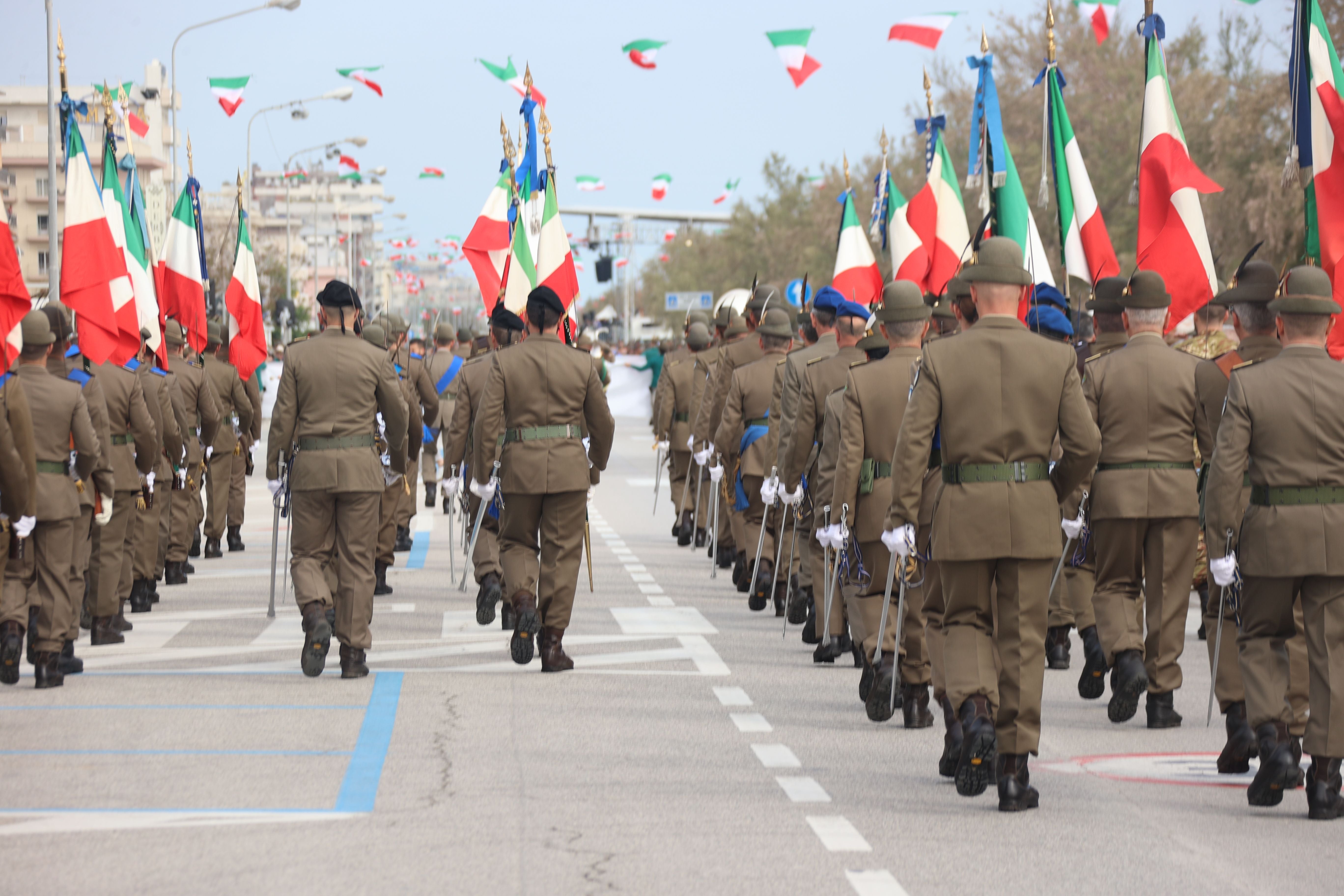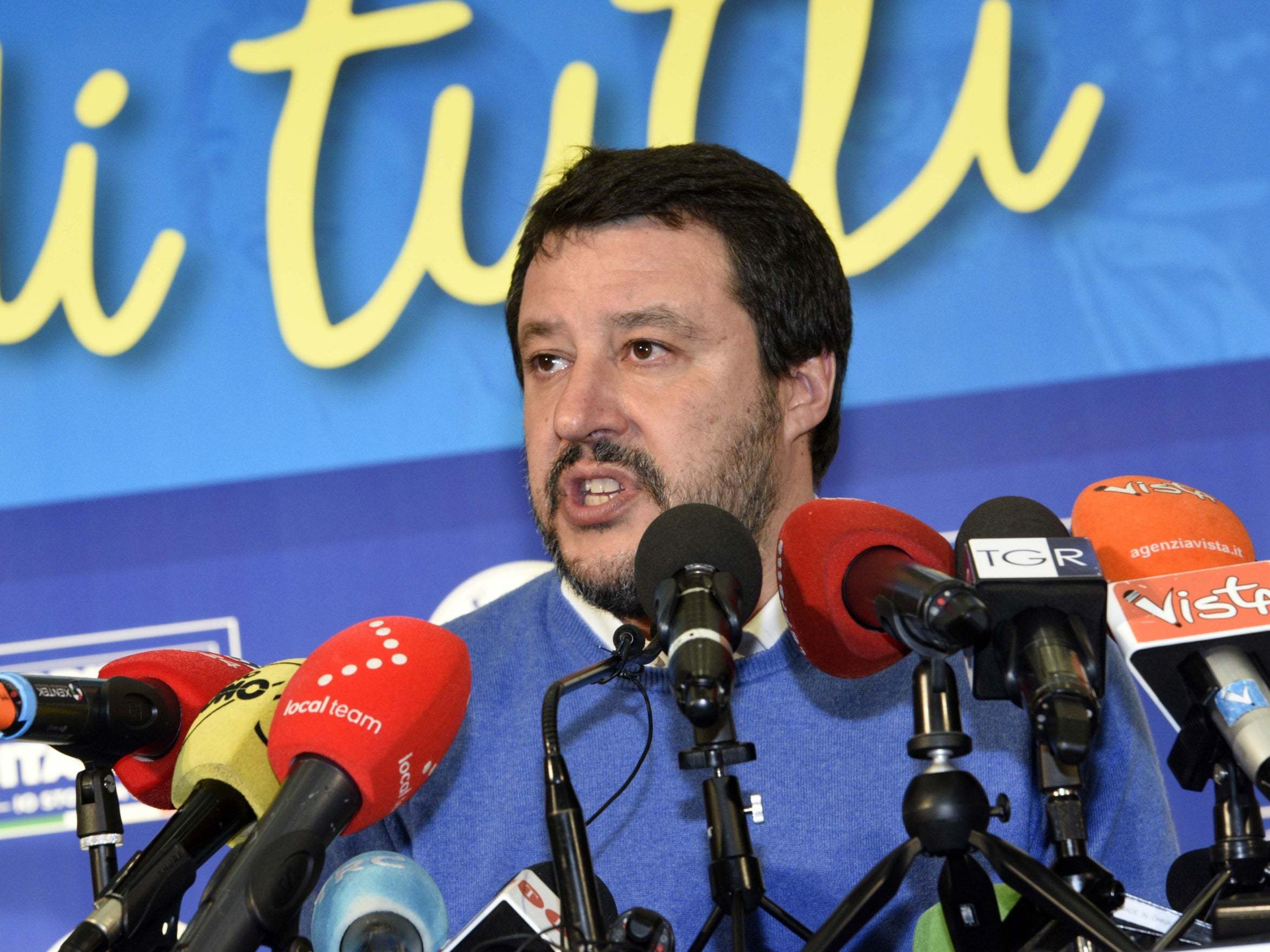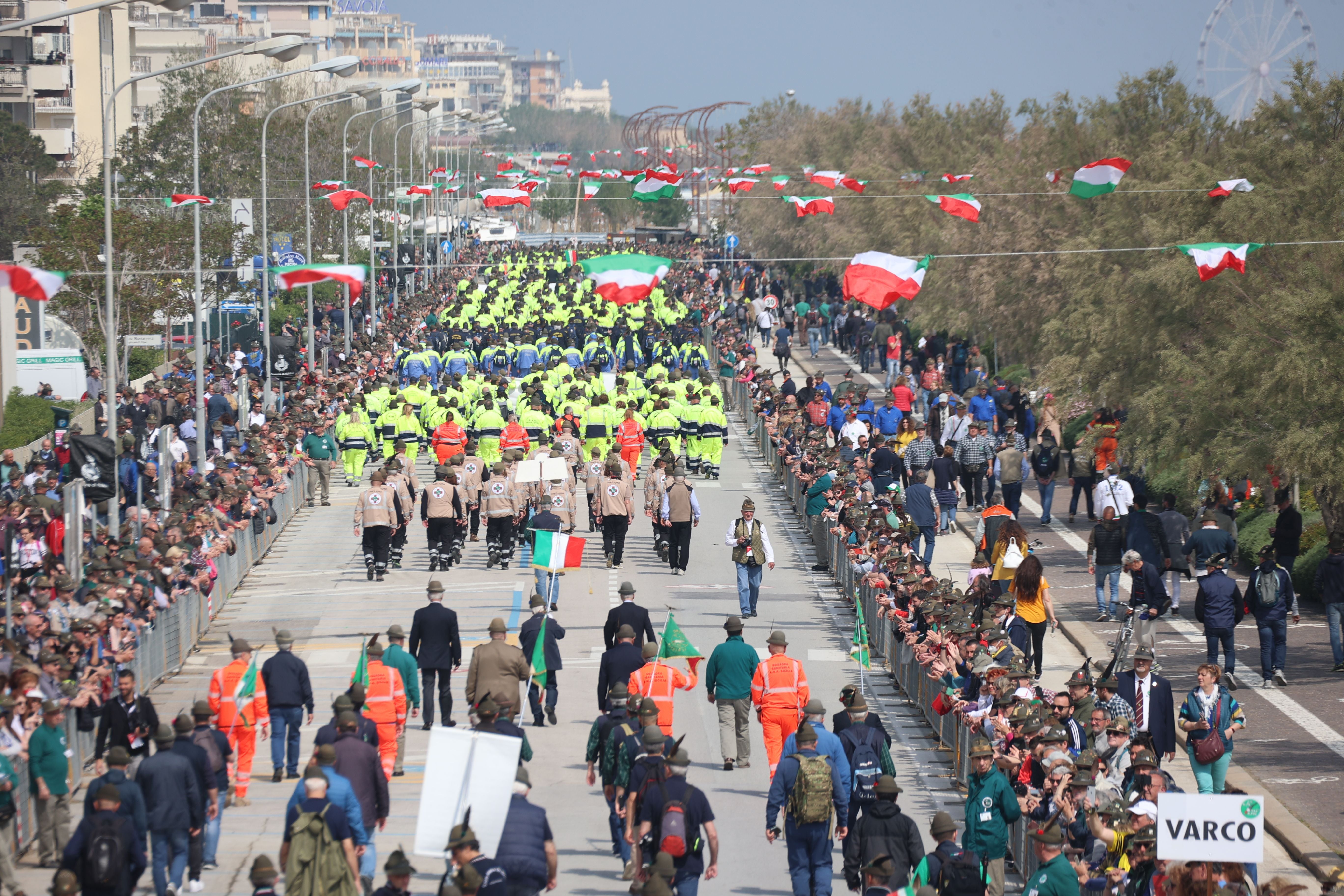More than 500 women allege being sexually harassed at annual Italian military event
‘What do we think when we see a good-looking girl? We’re men,’ says one official defending the veterans

Italy has been rocked by a #MeToo scandal after hundreds of allegations of sexual harassment surfaced during an annual gathering of the country’s elite mountain troops, the Alpini.
More than 500 women and girls reported being harassed by veterans and serving members of the Alpini during the course of the three-day celebrations in Rimini last week, according to feminist collective Non Una di Meno, with 179 of them describing being groped, cat-called and being subjected to explicit comments in intimidating circumstances.
One anonymous waitress recounted being verbally and physically harassed by inebriated troops who she said grabbed her by the hips and kissed her cheeks. She said one man threatened to beat her if she was still in a relationship when he returned to Rimini next year.
Another alleged victim told Corriere della Sera newspaper that after turning down the offer of a drink with a group of Alpini, the men grabbed the bench she and her friends were sitting on and forcefully moved them towards their table. Eventually the men left, but not before telling the three girls that they should “have sex more often”.
Some 75,000 Alpini veterans and current serving members attended the event.
As more first-hand accounts of harassment from last week and previous gatherings surfaced, a countrywide debate has begun, shedding light on the stark divide among Italians when it comes to women and gender-based violence.
The root of the problem is cultural, says Azzurra Pignotti, an activist with Non Una di Meno.
“Non-violent physical or verbal harassment are often not considered as real sexual harassment. We lack the awareness that even catcalling and unsolicited physical approaches are also part of gender-based violence,” Pignotti told The Independent.
Italy has not evolved as quickly as other countries when it comes to gender-based violence, said Pignotti. “The vision of the woman-object is characteristic of Italian popular culture,” she added.
Defence minister Lorenzo Guerini said the episodes would have to be “investigated by the competent authorities. There must be zero tolerance. Harassment and violence must never, under any circumstances, be justified and must be condemned without hesitation.”
Other politicians issued more ambiguous statements.
Far-right leader Matteo Salvini was quick to defend the mountaineers, saying it was “incorrect and unworthy to point the finger at the glorious Alpini, an example of generosity, sacrifice and respect … if someone made a mistake, they should pay, but hands off the history, the future and the past of the Alpini”.

North of Rimini, in the port city of Trieste, mayor Roberto Dipiazza faced backlash after downplaying the alleged attacks live on television. “What do we think when we see a good-looking girl? We’re men,” Dipiazza said. “Long live the Alpini.”
Alex Bazzaro, a local councillor in Venice, took to Twitter to dismiss one victim’s claim that being catcalled among a throng of drunk men felt like rape.
“What pisses me off is that there are women who actually get harassed by real monsters. And they don’t get this kind of visibility,” Bazzaro tweeted.
One social media user called the harassment reports “artfully assembled by fantasy” while another reminisced about his youth, and the women who rejoiced in receiving compliments from strangers. “This world has changed for the worst, unfortunately,” he wrote.
The Alpini National Association condemned the alleged harassment but said such incidents are to be expected amid large crowds.
“Unfortunately, many justify it by saying it’s always been this way, that back in the day women would not take offence, and therefore it shouldn’t be considered violence. Now we know this isn’t the case, and that the fundamental issue is consent,” said Ms Pignotti.

Almost half of Italy’s adult women have experienced some form of sexual harassment, according to a survey carried out by national statistics agency Istat in 2018, while three in 10 of those surveyed did not consider it violence to “slap a partner in the face if she has flirted with another man”.
As of Monday, more than 20,000 people had signed an online petition to suspend the annual Alpini gathering for the next two years to send a message.
“We are no longer willing to accept this kind of behaviour, demeaning for women and for all minorities. We want everyone to feel free to occupy cities without feeling threatened and in danger,” the organisers of the petition wrote.
On Thursday, Non Una di Meno, along with other activists are set to hold a public meeting in Rimini to discuss the best way to avoid incidents happening again. The groups are also organising a support system for those who want to come forward and formally report acts of harassment.
“Although it is certainly not a formal complaint that validates harassment, they have happened, regardless of whether they are reported or not,” the group said in a statement.






Join our commenting forum
Join thought-provoking conversations, follow other Independent readers and see their replies
Comments